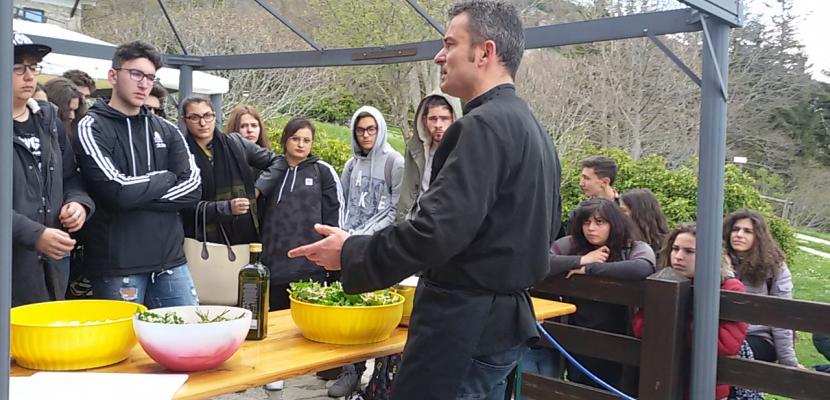Image

CucinAcost0 - Cooking lessons about wild edible plants for young cookers apprentices (high school)
Published on 19 April 2018

Italy
Abruzzo
This is the good practice's implementation level. It can be national, regional or local.
About this good practice
To reach the aim of the project, we involved the IPSAR - Istituto Professionale Per I Servizi Alberghieri E Ristorativi (Professional Institute for Hotel and Restaurant Services) through the educational path “Alternanza Scuola-Lavoro” promoted by MIUR (Ministero dell'Istruzione, dell'Università e della Ricerca – Ministry for Education, University and Research). The project was developed in two phase: during the first one the curator and the responsible of environmental education of Botanical Garden went to the Institute for a lesson about native edible wild plants, which some of them were brought in pots (so students could have a direct experience with those edible wild plants); the second phase occurred at the Botanical Garden where students had a direct experience, thanks to Mr. Michele Sozio, an important chef of Capracotta, who cooked traditional dishes using edible plants typical of mountain belt. The second part of the project was very important for students, because they had the possibility to relate themselves with an expert of their sector study, moreover to compare with him about the knowledge related to traditional dishes using other common edible plants.
Resources needed
To reach the aim of the project, we had to find the edible wild plants for the lesson and prepare them in pots and to contact a local chef, who cooks traditional dishes with edible wild plants
Evidence of success
Students were so much enthusiastic of the project, that they proposed new recipes with the wild edible plants that we showed the during the lesson. Moreover, when they visit us at the botanical garden for the cooking lesson, some of them reported that they asked to they grandparents and parents about wild edible plants. So there was a big interest about the topic.
Potential for learning or transfer
The cultural heritage is important for future generations, related to this assumption an important aspect that emerged by this project regards the will of students to confront themselves with people who know about the use (usually elderly). The handing down of the knowledge about the use of wild edible plants from a generation to an other preserve this important cultural heritage, independently to the location (region or nation).
Good practice owner
You can contact the good practice owner below for more detailed information.
Organisation
Consorzio del Giardino della Flora Appenninica

Italy
Molise
Contact
Consorzio del Giardino della Flora Appenninica
